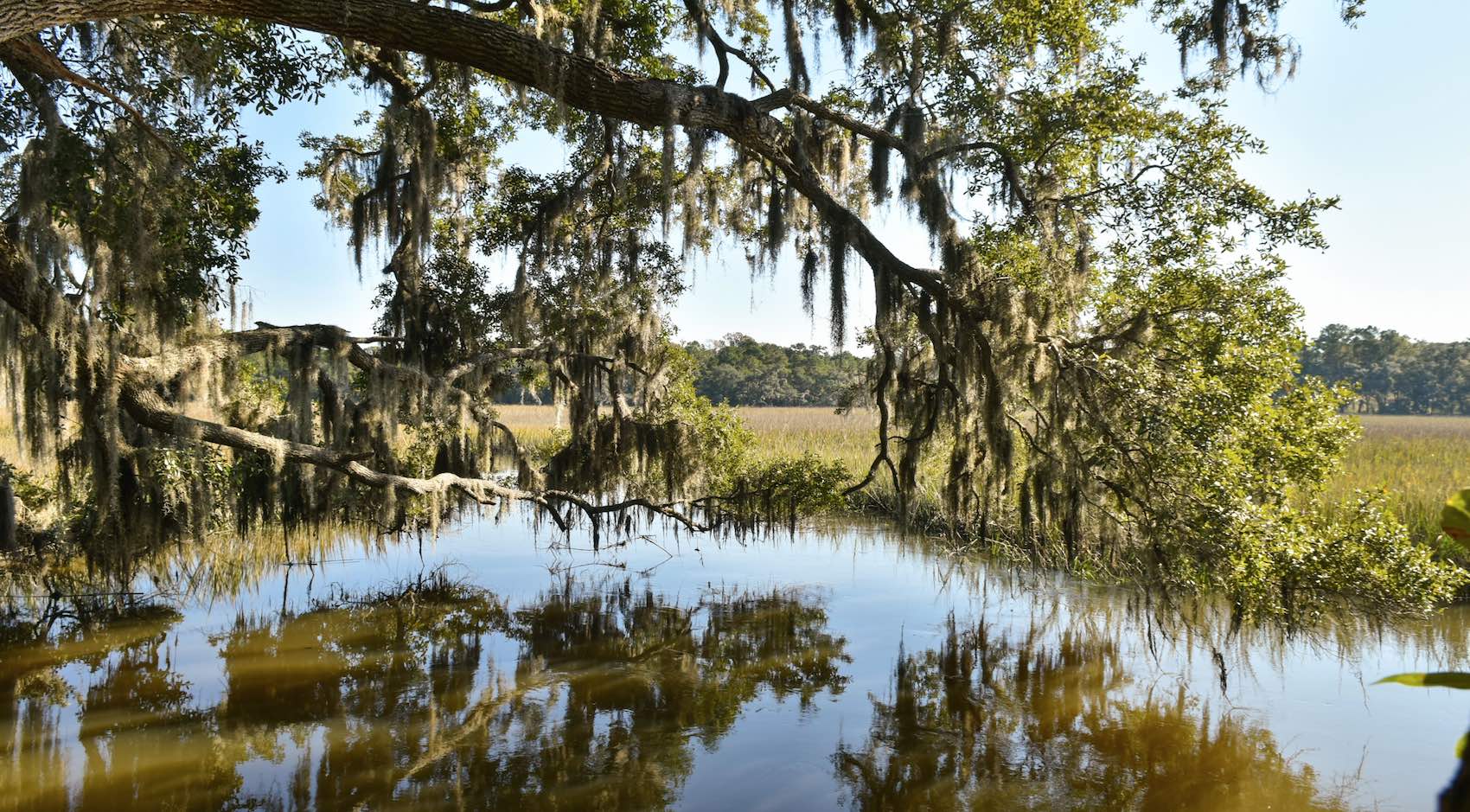 By JG Walker, Guest Contributor
By JG Walker, Guest Contributor
Wadmalaw Island was first settled thousands of years ago by Cusabo Indians, who hunted deer and wild turkey in the virgin forests, grew corn and beans in the verdant soil, and left behind huge middens of oyster shells. Among them were the Kiawah, Edisto and Stono tribes, whose names live on in area waterways and islands.
In 1666, Captain John Sanford and his crew landed near the current town of Rockville, searching for a place to establish the “Carolina” colony. It wasn’t the last time that sails would be seen on Bohicket Creek, but a later expedition chose a different site on the Ashley River, which was eventually moved to the peninsula we now call Charleston.
So England’s Lord Proprietors divided Wadmalaw Island into large agricultural plantations, where slaves from the Caribbean and West Africa introduced the techniques of rice cultivation. Indigo and Sea Island cotton were also grown on Wadmalaw and throughout the South Carolina Lowcountry, making incredible fortunes for the landowners. None of those industries survived the Civil War, but the rich Gullah culture and cuisine have been preserved by the descendants of those laborers, while “Carolina Gold” rice has been revived on farms elsewhere in the state.
Smaller-scale agriculture continued on Wadmalaw after 1866 on farms owned by families both black and white. They also hunted in the still-teeming maritime woodlands and fished the tidal waters around the island for shrimp, crabs, oysters and other seafood, a bounty that continues to this day.
In 1890, a pair of local cousins raced their sailboats on the Bohicket Creek and an enduring Wadmalaw tradition was born. Last August, the 125th-annual Rockville Regatta was held by the Sea Island Yacht Club with about 50 boats and thousands of on-shore celebrants participating.
In 1960, the Lipton Company established an experimental island tea farm, and a new agricultural tradition was born on Wadmalaw Island. Today, now owned by the Bigalow Family, the Charleston Tea Plantation is the only commercial tea garden in the United States, markets American Classic Tea and supplies the official tea served at The White House. Wadmalaw is also home to the Deepwater Vineyard, which cultivates muscadine grapes to produce five distinctive wines, and the Firefly Distillery, home of popular brands like Firefly Sweet Tea Vodka and Sea Island Gold Rum.
But even with the growing success of those businesses, Wadmalaw has retained its rural character in an island of Lowcountry paradise with expansive homes surrounded by exquisite water views and where the best is yet to come …
NOTE: Experience the beauty and mystique that comes from living on this scenic, unspoiled Sea Island for yourself. From boating on the Intracoastal Waterway to fishing, crabbing and kayaking, all just 25 minutes from the heart of historic downtown Charleston, SC.
Come home to “Dayspring ” …
Interested in Learning More?
Our expert teams - from development, investment, real estate, and property management - have experienced it all and have the insight to help you along the way.
Find Out More